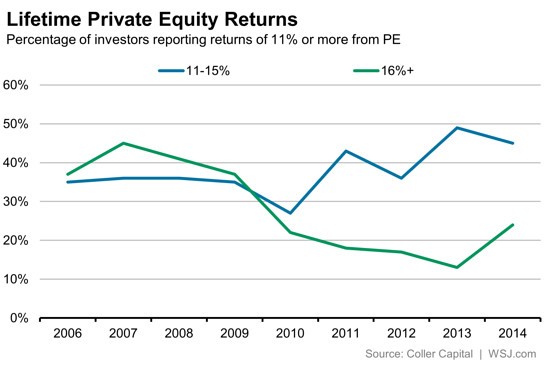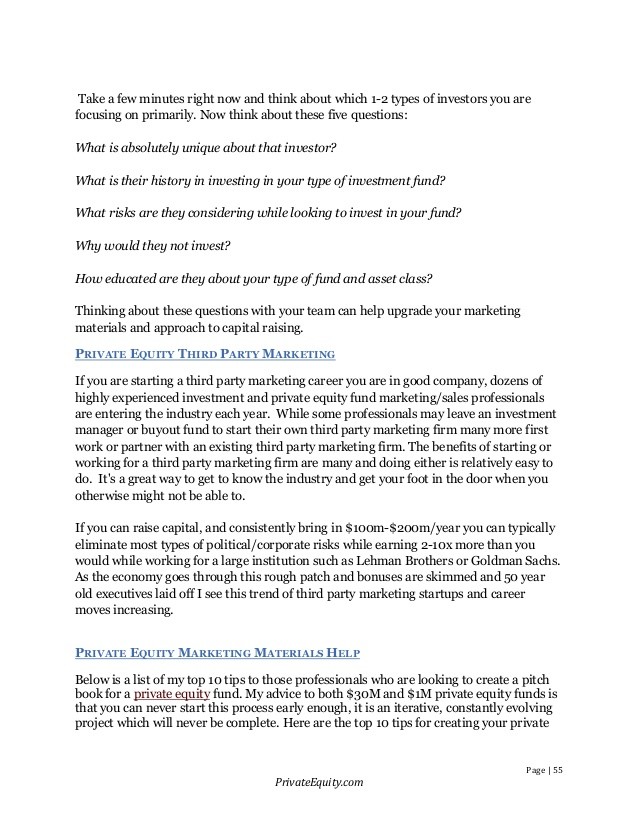Five things to consider when investing in private equity
Post on: 16 Март, 2015 No Comment

Five things to consider when investing in private equity
Posted by Jennifer Bollen on July 24, 2014
More than 1,900 private equity funds globally are currently competing for capital, according to Preqin, and with almost all buyout firms claiming to be top-quartile, the choice may be a little overwhelming.
Helpfully, Preqin has interviewed 140 placement agents and consultants, and produced a handy guide to the most important due diligence questions.
It asks the following: What are the key indicators a fund will successfully raise capital? How can an investor predict a fund will outperform its peers? And how does an investor gain access to the best firms?
Here are five things to consider before handing over your money:
1. Experience and expertise with fund strategy
Clearly, there is little point worrying too much about a fund’s future performance if it fails to reach its target in the first place.
The key to a private equity firm hitting its target? Experience and know-how with a particular investment strategy, according to 81% of placement agents surveyed by Preqin.
Investment consultants – defined here as firms which provide advice and investment services also put this high on their list of priorities.
2. Performance is more about the team than a top-brand firm
Investors should pay much closer attention to the performance of a team than to the performance of a broader firm.
Team-level returns were listed as the second most important thing to look at when judging if a firm will reach a target among both sets of respondents, cited by 80% of placement agents and 74% of consultants.
Individuals deliver returns, not a firm’s brand name, said Preqin. If a firm’s top deal-maker leaves, they take their track record with them. Likewise, a private equity house with weak performance could warrant a second look if they bring in highly-regarded new talent.
3. The all-important fourth (and sixth) year

A strong correlation exists between the returns of predecessor and successor vehicles, but investors should pay particular attention to a fund’s fourth year of investment. Preqin said a funds performance in its fourth year is significantly correlated with its overall returns at liquidity. This link becomes even stronger in year six and investors can see the clearest correlation over this period among the best and worst funds.
4. Make a big, long-term commitment
Of course, buyout firms have demands too and the best funds can fill up fast – 80% of investment consultants and 57% of placement agents said the top-tier firms were particular about which investors to allow into their funds.
These managers want big commitments and they prefer relationships with clients who plan to remain partners in the long term.
And if you want to invest in a popular fund, be prepared to make a decision fast or risk losing your place.
5. Don’t be too pushy
For private equity investors, one of the great legacies of the crisis was the ability to negotiate more favourable fund terms – lower management fees, completely offset transaction fees and discounts for those committing at the earliest stages, to name a few.
But such a strong buyer’s market never lasts forever and the best funds can still stand firm on terms and conditions when they want to. Ninety-four percent of placement agents and 76% of investment consultants cited investors being too demanding as the greatest barrier to top-tier vehicles.














